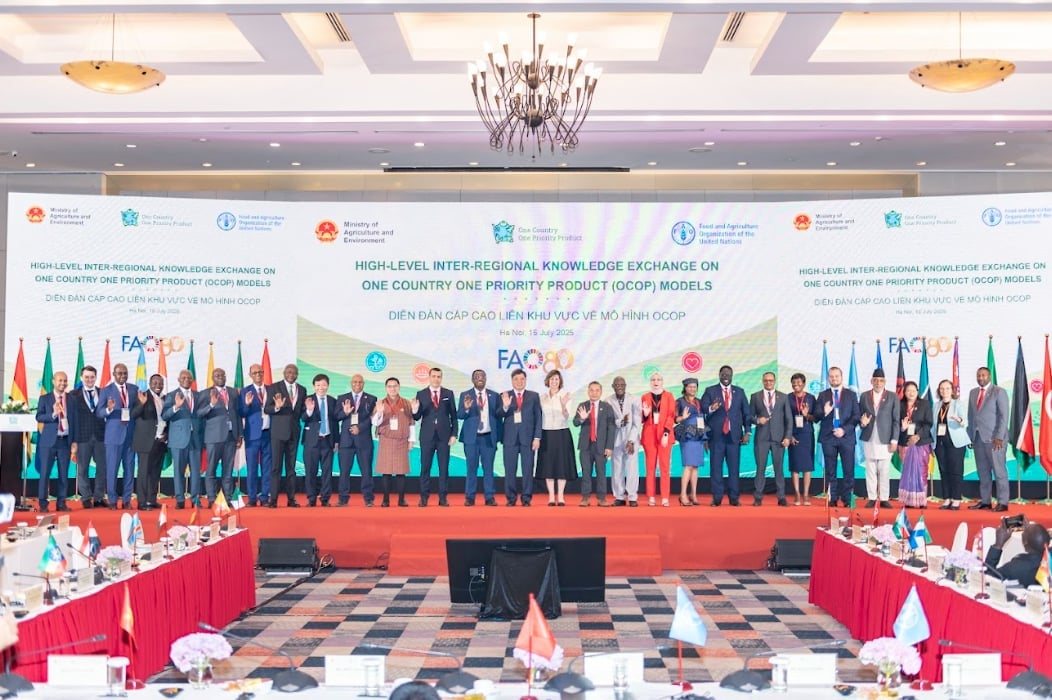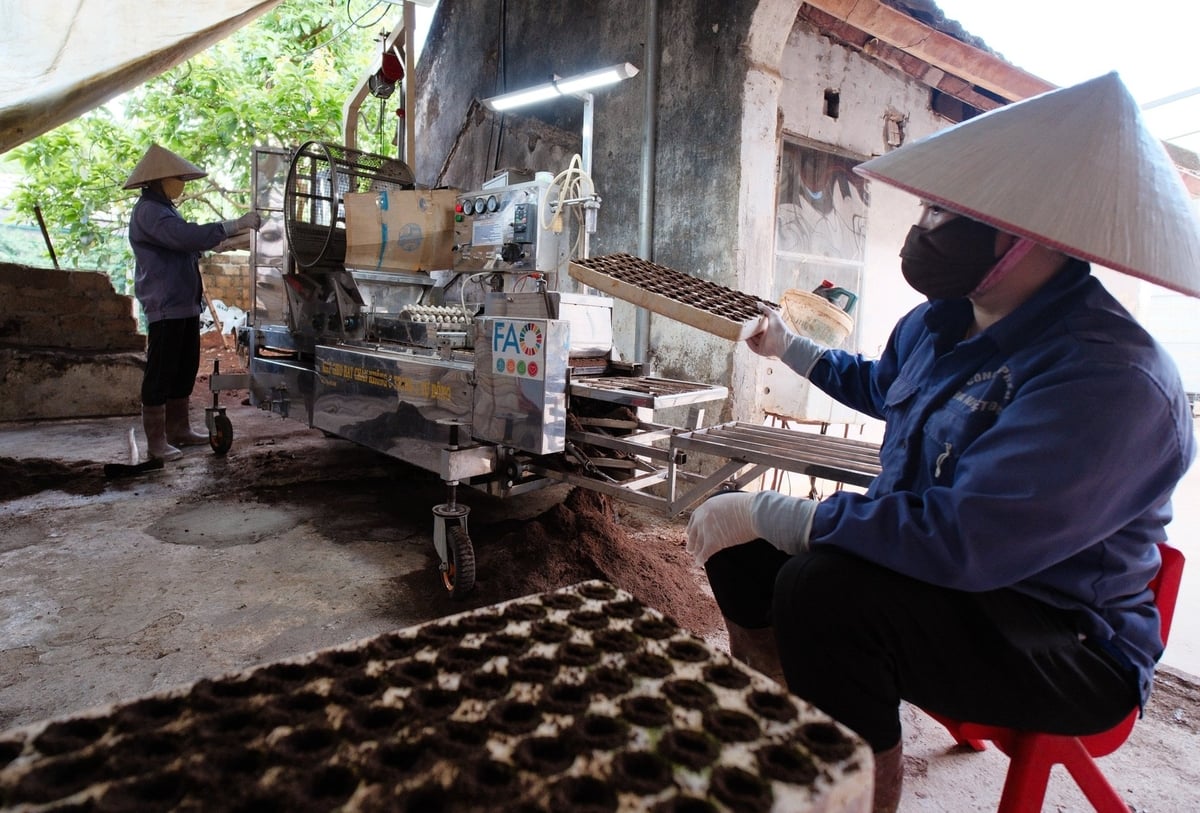December 6, 2025 | 10:46 GMT +7
December 6, 2025 | 10:46 GMT +7
Hotline: 0913.378.918
December 6, 2025 | 10:46 GMT +7
Hotline: 0913.378.918
This year, Viet Nam marks 80 years of independence - a proud moment for a proud nation.
From the hardships of conflict and reconstruction to becoming one of Asia’s most dynamic economies, Viet Nam has made remarkable progress in education, health, poverty reduction, and agricultural development. Once dependent on food aid, it is now a leading exporter of rice, seafood, coffee, pepper, fruits, and vegetables, supported by strong reserves, increasingly diversified value chains, and enhanced competitiveness.
It is a story of determination, unity, and resilience - one that inspires the world. Yet the global food security landscape is shifting, shaped by climate change, supply chain disruptions, volatile markets, and evolving diets. These pressures are felt everywhere, and Viet Nam is not immune. Food is never just about calories or commodities. It is about dignity, identity, and the right to be nourished. That makes food security not just important, but essential. No one should go hungry, lack a healthy diet, or face malnutrition. Ensuring food security is not charity - it is justice.

Agriculture ministers and senior officials from 17 countries attended the High-Level Inter-regional Knowledge Exchange on One Country One Priority Product Models, co-organized by FAO and MAE. Photo: Tran Van.
For the people of Viet Nam, food is culture, identity, and pride. A bowl of rice or steaming “pho” is more than sustenance - it is heritage. Food security is therefore about fairness, nutrition, sustainability, and care. It means ensuring that all citizens - wherever they live and whatever their circumstances - should be able to access safe, diverse, and nourishing food.
As Viet Nam enters a new chapter, it must aim not only to grow more, but to grow better - for people, for the planet, and for future generations. This is at the heart of FAO’s vision of the Four Betters: better production, better nutrition, a better environment, and a better life - leaving no one behind.
For Viet Nam, five shifts are essential:
These approaches are already being tested - in pilot farms, fisheries, nutrition programs, and digital supply chains. The challenge now is to scale them up, secure investment, and embed them into policy.
The path forward demands shared responsibility. The Government of Viet Nam has shown strong leadership, including through the Partnership Agreement for Transparent, Responsible and Sustainable Food Systems Transformation in Viet Nam, which was signed last year. This landmark initiative brings together national ministries, FAO, and other development partners to coordinate efforts towards a food future that is sustainable, inclusive, and resilient.
FAO is proud to work alongside national partners to implement this vision and to share Viet Nam’s experience with the world through South–South and Triangular Cooperation. But transformation cannot happen only from above - it must grow from the ground up. It requires participation from villages to cities, from elders to youth, from farm to fork. It also requires trust and listening - because farmers, fishers, and communities know what works. They simply need the right support.

Technical support through FAO has helped many farmers across the country consolidate their production processes and increase the added value of their products. Photo: Quynh Chi.
Since arriving in Viet Nam, I have been struck by the pride people take in their land, their food, and their independence. That pride must be matched by protection - of people, soil, waters, and traditions. The future must blend modern innovation with age-old wisdom.
Because food is not only about economics or policy, it is about justice and care. A nourished child, a thriving farmer, a full plate: these are the true markers of progress and dignity.
Eighty years after independence, Viet Nam has every reason to be proud. Yet the next chapter will be shaped by complex, overlapping challenges - climate change, population growth, water stress, and global instability - with food systems at the center.
The question we face is clear: what kind of food system will we leave behind? One that nourishes, protects, and sustains? I believe the answer can be yes. The tools are in our hands, the knowledge in our communities.
FAO remains committed to walking this path with the people of Viet Nam, working together for better production, better nutrition, a better environment, and a better life, leaving no one behind.
FAO Representative in Viet Nam

(VAN) As of 2025, the ASEAN region has a total of 69 ASEAN Heritage Parks recognized across its 10 member states. Among them, Viet Nam contributes 15 ASEAN Heritage Parks.

(VAN) Yok Don National Park has high biodiversity with numerous endemic plant and animal species, and it is also the only dipterocarp forest ecosystem conservation area in Viet Nam.

(VAN) Viet Nam and Brunei signed two important MOUs on fisheries and IUU, expanding cooperation in agriculture, the environment, and Halal exports, aiming to substantively implement joint projects.

(VAN) The Viet Nam Coconut Association worked with the International Finance Corporation (IFC) and businesses to promote the supply chain, enhance competitiveness, and develop the coconut industry sustainably.
![Hue aims for Net Zero: [2] Pioneering low-emission tourism](https://t.ex-cdn.com/nongnghiepmoitruong.vn/608w/files/huytd/2025/12/04/0633-dulichzero-4-095634_236-161125.jpg)
(VAN) The ancient capital of Hue has developed Net Zero tourism products and models, aiming to reduce carbon emissions and pioneer the establishment of Viet Nam's green tourism destination.

(VAN) C.P. Viet Nam has announced the successful completion of its goal to plant 1.5 million trees during the 2021-2025 period, a key milestone within company's long-term ESG strategy and its roadmap for emission reduction.

(VAN) This is an initiative of MAE aimed at creating a unified coordination mechanism to implement agricultural cooperation programs with developing countries.